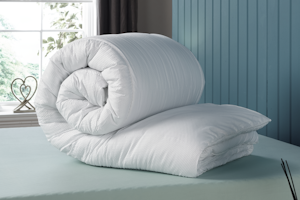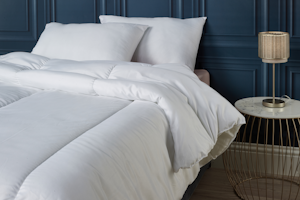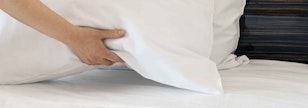20 Mar 2025
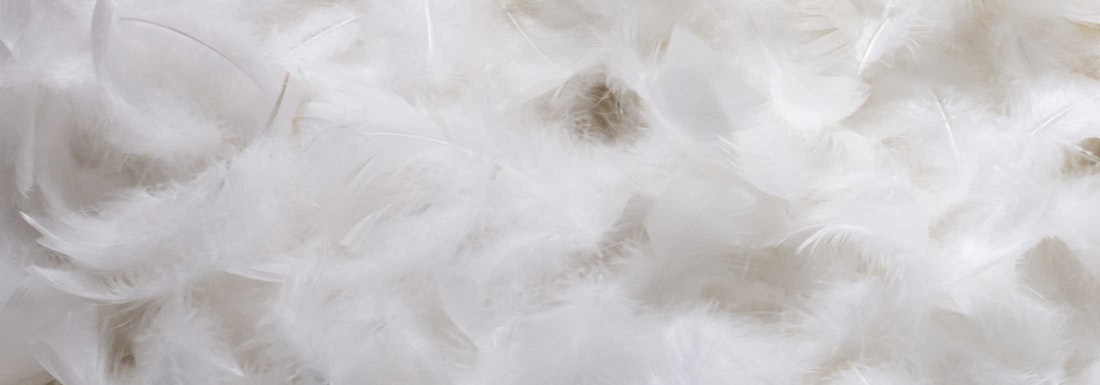
Which is Better, Goose Down or Duck Down?
04 Jan 2023
Choosing new bedding can be an overwhelming process. After researching your options, you may have discovered the many outstanding qualities of down as a filling for duvets and pillows. Then, upon shopping around for different down products, you’ve noticed that duck down and goose down are two separate fillings. This leads to questions of which filling is better, goose down or duck down, and how they differ from each other.
Although the two are similar in many respects, goose down is a superior filling to duck down. Goose down and duck down are equally durable and don’t differ much in the way of odour or colour; however, goose down beats duck down when the fillings are compared in their insulating properties. Goose down has a higher fill power, meaning it creates warmer bedding. On top of this, a higher fill power also equates to a fluffier and softer filling. Goose down duvets and pillows are therefore a better choice over duck down alternatives if you’re trying to achieve the utmost luxurious sleep possible.
What is Down?
Down is a type of natural bedding filling made from the soft undercoat of fowl like ducks and geese. On these birds, the down layer sits underneath the visible outer coat of feathers. It forms a light, fluffy, coating, with the primary purpose of insulating the birds’ bodies; thanks to these characteristics, down also makes an excellent filling for duvets and pillows.
While feathers have quill stems, down lacks any form of detectable quill. This filling is instead made up of fluffy three-dimensional clusters of soft insulating fibres. It isn’t the down itself that traps heat; rather, it’s the gaps between the fluffy filament clusters that act as pockets of insulation. This forms a breathable, insulating layer that supports both heat retention and regulation in the bedding.
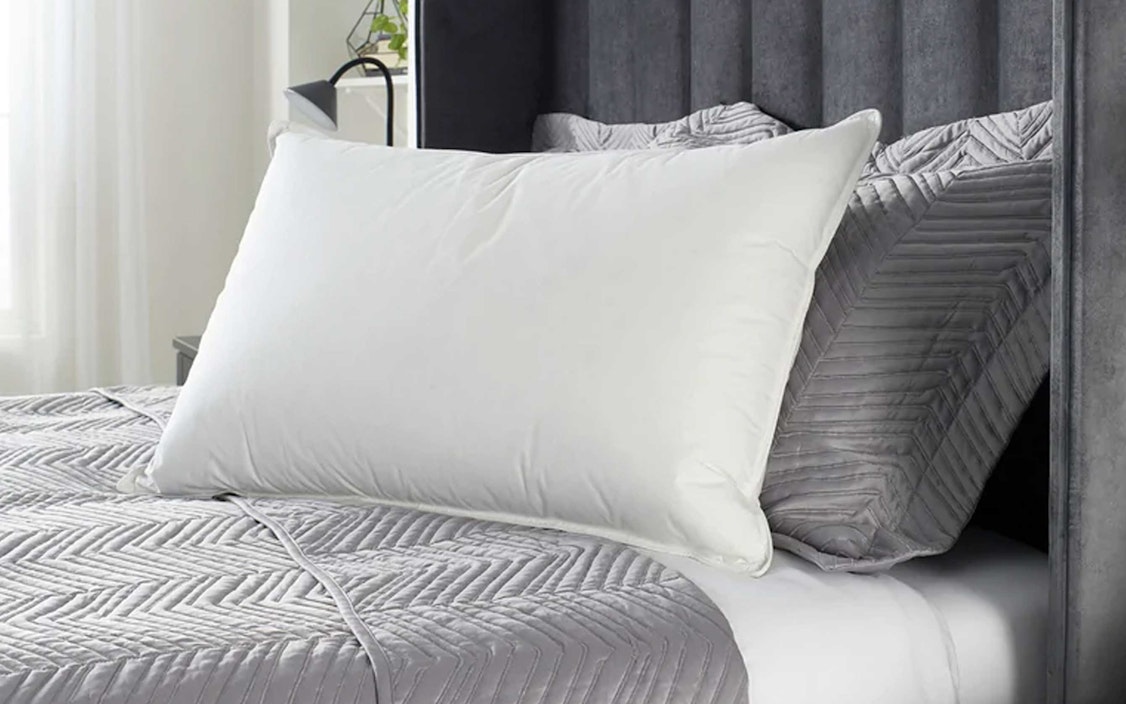
What Are the Differences Between Goose Down and Duck Down?
The main difference between goose down and duck down is that the former tends to have better insulating properties than the latter. Goose down typically comes with a higher fill power than duck down; this means that goose down is better able to retain and regulate heat. In other aspects, like the durability, odour, and colour of the two fillings, there are no inherent differences.
Fill Power
The defining difference between goose down and duck down bedding is the difference in fill powers of these two fillings’. When talking about duvets and pillows, fill power is a term referring to the measure of the filling’s quality. In short, goose down typically has a higher fill power than duck down.
Fill power or ‘FP’ is essentially a numerical figure that reflects the softness and fluffiness of the filling in question. This figure is also a representation of the insulating qualities of the filling; a higher fill power means that the filling is better able to trap air, allowing for better insulation. In other words, down duvets and pillows with higher fill powers will keep you warmer in bed.
We can further understand fill power by looking at how birds form their down in the first place. The longer a bird lives, and the colder the climate in which it’s living, the more developed its down will be. Therefore, down taken from older aged birds in colder habitats will be denser, and consequently higher in fill power. Down from larger birds will also have a higher fill power as they produce their down in larger clusters. In down duvets and pillows, larger clusters create a naturally more insulated filling.
Goose down offers the highest possible fill power, with the highest-end duvets running at 1,000 FP. Comparing this to duck down, the greatest potential fill power from a duck down duvet maxes out at 850 FP. It’s for this reason that we regard goose down bedding to be the most luxurious form of down bedding; the higher fill power gives goose down the edge over duck down, specifically in the bedding’s softness, fluffiness, and insulating properties.
Durability
In terms of the fillings’ durabilities, there isn’t a significant difference between goose down and duck down. Both of these fillings are equally durable against washing and wear and tear.
The durability of any down filling is dependent on the fat and oil content in the down. There isn’t much of an inherent difference in the fat and oil content of either goose or duck down; a lot of other variables influence this factor, like the weather, feeding, and general condition of the birds. Some birds simply have more fat and oil than others, but this isn’t contingent on whether the bird was a duck or goose. As such, there isn’t a discernible difference between the durabilities of these two types of down.
For down filling to remain resilient, pliable, and insulating, it must contain a certain percentage of fat and oil. If during manufacturing, the down filling is overwashed, it will lose too much of its oil and fat; this will cause the down to become dry and brittle, reducing its durability and fill power. Quality products from reputable suppliers (like us at Downland) are processed properly to preserve the right amount of fat and oil; this ensures the down filling is highly durable from the first night of use.
Odour
As down is a natural filling, duck down and goose down products can give off an aroma when brand new. Both of these fillings have been known to be somewhat odorous upon their first uses.
The subtle scent that down products emit also has to do with the fat and oil content of the filling. These natural substances can give down pillows and duvets a slight odour to those with an acute sense of smell. As geese and ducks have slightly different feeding habits, there may be a minor difference in how their down smells; it would be a matter of personal opinion on which filling has a more noticeable smell.
Regardless, the initial natural aroma of a down duvet or pillow is easy to remedy if present. We recommend running all down products through the wash before using them for the first time. An alternative method to reduce any down aroma is to air out your duvet and pillows; treat them with a sprinkling of baking soda before placing them outside in the fresh air, ideally in the sun.
Colour
Both goose down and duck down fillings come in shades of white and mottled grey. Neither the bird nor the colour of its down will inherently impact the quality of the filling.
Considering the luxury standard of this filling, pure white down is the most desirable colour for pillows and duvets. This is solely from an aesthetic point of view; in reality, the colour of the down clusters has no impact on the filling’s quality, whether they’re pure white or grey.
Which is Better - Goose Down or Duck Down?
Weighing up all of the previously discussed points, the conclusion is that goose down is overall better than duck down. The two fillings are similar in many respects; however, goose down has the edge over duck down in fill power, making it the superior type of bedding.
To reiterate, goose down duvets and pillows typically have a higher fill power than their duck down equivalents. Geese are larger birds that produce bigger down clusters, meaning their down acts as a more insulating bedding filling. With this in mind, you should opt for goose down duvets and pillows if you want the best sleeping experience possible.
